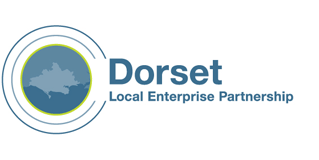 The Economic and Social Research Council (ESRC) is seeking to commission an evaluation study to assess the ways in which social science research and the knowledge and skills of social scientists can have impact in business. The study will begin by assessing the business impact of social science through the work of a small number of Business/Management Schools. It will then track the career paths of social science doctoral graduates from these Schools, and investigate in greater depth the contributions of those working in business.
The Economic and Social Research Council (ESRC) is seeking to commission an evaluation study to assess the ways in which social science research and the knowledge and skills of social scientists can have impact in business. The study will begin by assessing the business impact of social science through the work of a small number of Business/Management Schools. It will then track the career paths of social science doctoral graduates from these Schools, and investigate in greater depth the contributions of those working in business.
The aims of the evaluation are as follows:
Part 1 – Impact of Business/Management Schools
- identify the range and nature of business impacts resulting from the work of the Business/Management Schools
- evaluate the processes through which business impacts may be or have been generated, through research and related activities (including academic/business collaborations, knowledge exchange and business engagement initiatives, networking and dissemination)
- develop an understanding of the contributions of social science within local, regional and national contexts, and the factors that promote or inhibit impact within these contexts
- identify and analyse the determinants of the impacts identified (ie why and how impact has been generated)
- identify good practice and lessons learned, to support the development of impact generation within the business sector
- inform the development of methodology for future impact evaluation studies in this area.
Part 2 – Impact of social scientist with PhDs working within business
- identify the employment destinations of social science doctoral graduates from the three Schools
- identify the range and nature of impacts that social scientists with PhDs working in business have contributed to
- identify and analyse the determinants of the impacts (ie why and how impact has been generated)
- explore impact processes and potential impacts, and identify any barriers to impact generation
- develop an understanding of businesses’ appreciation and need for the higher level skills associated with PhD training
- identify good practice and lessons for enhancing the contribution that social science doctoral graduates can make to business
- inform the ESRC’s investment in PhD training with a view to maximising future impacts.
Further details, and a copy of the full specification are available from the Research Councils UK Shared Services Centre Ltd. Please contact Jonathan Smith by email: jonathan.smith@ssc.rcuk.ac.uk or by telephone: 01235 446394 (Ref PS120008).
The deadline for submission of bids is 11.00 on 11 June 2012.
The RKE Operations team can help you with your application.


 Having only recently completed a grant application for the
Having only recently completed a grant application for the 












 Nursing Research REF Impact in Nepal
Nursing Research REF Impact in Nepal Fourth INRC Symposium: From Clinical Applications to Neuro-Inspired Computation
Fourth INRC Symposium: From Clinical Applications to Neuro-Inspired Computation ESRC Festival of Social Science 2025 – Reflecting back and looking ahead to 2026
ESRC Festival of Social Science 2025 – Reflecting back and looking ahead to 2026 3C Event: Research Culture, Community & Cookies – Tuesday 13 January 10-11am
3C Event: Research Culture, Community & Cookies – Tuesday 13 January 10-11am Dr. Chloe Casey on Sky News
Dr. Chloe Casey on Sky News ECR Funding Open Call: Research Culture & Community Grant – Application Deadline Friday 12 December
ECR Funding Open Call: Research Culture & Community Grant – Application Deadline Friday 12 December MSCA Postdoctoral Fellowships 2025 Call
MSCA Postdoctoral Fellowships 2025 Call ERC Advanced Grant 2025 Webinar
ERC Advanced Grant 2025 Webinar Horizon Europe Work Programme 2025 Published
Horizon Europe Work Programme 2025 Published Update on UKRO services
Update on UKRO services European research project exploring use of ‘virtual twins’ to better manage metabolic associated fatty liver disease
European research project exploring use of ‘virtual twins’ to better manage metabolic associated fatty liver disease